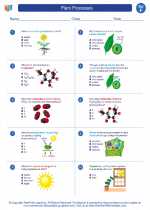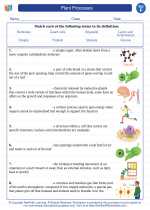Hydraulics
Hydraulics is a branch of science and engineering that deals with the mechanical properties of liquids. It focuses on the behavior of fluids and how they can be used to transmit force and energy.
Key Concepts
- Fluid Mechanics: The study of how fluids (liquids and gases) behave and interact with their surroundings.
- Pascal's Law: States that a change in pressure applied to an enclosed fluid is transmitted undiminished to all portions of the fluid and to the walls of its container.
- Hydraulic Systems: Systems that use liquid to transmit power.
- Hydraulic Machinery: Machines and equipment that utilize hydraulic power for operation, such as hydraulic lifts, cranes, and brakes.
Applications
Hydraulics has numerous practical applications, including:
- Hydraulic machinery in construction and manufacturing
- Hydraulic brakes in vehicles
- Hydraulic lifts in car repair shops and elevators
- Hydraulic systems in aircraft and aerospace technology
Study Tips
When studying hydraulics, it's important to:
- Understand the properties of liquids, including viscosity, pressure, and flow.
- Learn about Pascal's Law and how it applies to hydraulic systems.
- Practice solving problems involving hydraulic force and pressure.
- Explore real-world examples of hydraulic applications to gain a deeper understanding of the concepts.
Conclusion
Hydraulics is a fascinating field that plays a crucial role in various industries and technologies. By understanding the principles of fluid mechanics and hydraulic systems, you can appreciate the impact of hydraulics on our daily lives.
.◂Science Worksheets and Study Guides Sixth Grade. Plant Processes
Study Guide Plant Processes
Plant Processes  Activity Lesson
Activity Lesson Photosynthesis & Respiration
Photosynthesis & Respiration  Worksheet/Answer key
Worksheet/Answer key Plant Processes
Plant Processes  Worksheet/Answer key
Worksheet/Answer key Plant Processes
Plant Processes  Worksheet/Answer key
Worksheet/Answer key Plant Processes
Plant Processes  Worksheet/Answer key
Worksheet/Answer key Plant Processes
Plant Processes  Vocabulary/Answer key
Vocabulary/Answer key Plant Processes
Plant Processes  Vocabulary/Answer key
Vocabulary/Answer key Plant Processes
Plant Processes 

 Activity Lesson
Activity Lesson
 Worksheet/Answer key
Worksheet/Answer key
 Worksheet/Answer key
Worksheet/Answer key
 Worksheet/Answer key
Worksheet/Answer key
 Worksheet/Answer key
Worksheet/Answer key
 Vocabulary/Answer key
Vocabulary/Answer key
 Vocabulary/Answer key
Vocabulary/Answer key

The resources above cover the following skills:
LIFE SCIENCE
From Molecules to Organisms: Structures and Processes
Students who demonstrate understanding can:
Construct a scientific explanation based on evidence for the role of photosynthesis in the cycling of matter and flow of energy into and out of organisms.